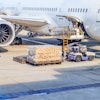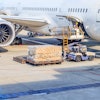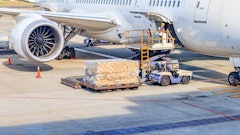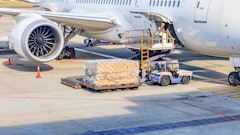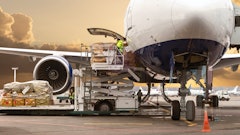Washington: The Transportation Security Administration has told the airline and cargo industries it will not meet a December 31 deadline requiring inspection of all air cargo on international passenger flights destined for the United States.
In 2007, Congress mandated that 100 percent of air cargo on passenger flights be inspected for explosives by August 2010. But while the TSA met that goal for passenger flights originating in the United States, the deadline has been elusive for inbound international passenger flights, which carry about 6 billion pounds of cargo a year.
At a congressional hearing in March, TSA Administrator John Pistole said the agency "probably" would not meet the Dec. 31 goal. But news that the TSA definitely would not enforce the requirement came not in statements to Congress or to the public, but in a private communication to the industry.
The International Air Cargo Association announced last week the TSA would not proceed with the deadline. It commended the TSA, saying the requirement could have led to "significant global supply chain disruption."
The TSA on Thursday declined to confirm to CNN whether it had scuttled the deadline, instead issuing a statement saying that air cargo "is more secure than it has ever been." The TSA said 100 percent of "high risk international inbound cargo" is screened.
The TSA also declined to say whether a new deadline has been set.
The cargo inspection deadline has changed on several occasions. As originally mandated by Congress, the TSA was to set up a system for inspecting cargo, or require airlines to inspect cargo, by August 2010. While meeting the domestic deadline, the TSA said it would take until 2013 to set up a system of cargo inspection for international flights.
But after the attempted "toner cartridge" bombing of two cargo planes in October 2010, the TSA moved up the goal to the end of 2011.
This month's decision to postpone that deadline was "no surprise," says Brandon Fried, executive director of the Airforwarders Association.
Fried said the TSA had told the industry that of the 197 countries with flights to the United States, the TSA had signed agreements with only three, with another 20 in the pipeline. Those countries represent about 80 percent of the air cargo to the United States, Fried said.
But moving forward with the December 31 deadline "would have been a big burden" and it would have resulted in shipping delays, increased costs, and increased damage on shipments during inspections, Fried said.
"We're happy that the TSA is listening to us," Fried says. "We've encouraged the TSA all along to focus their efforts on a harmonized international approach" so that shippers won't have to adhere to dozens of different security requirements from dozens of countries.
Fried said that all countries that ship to the United States have cargo security systems, even if they have not been approved by the TSA.
In the United States, the TSA created the Certified Cargo Screening Program (CCSP), which certifies facilities to screen cargo before it reaches the airport. The TSA sets security standards for the facilities, including physical access controls and screening of employees.
Cargo that does not go through a CCSP facility is screened by the airlines.
But industry representatives said it is much harder to set up an international system.
"The TSA... found that other countries were not as forthcoming as they had hoped (when they set the deadline)," Fried says. "That doesn't mean those other countries weren't taking steps -- just that they weren't giving TSA visibility." Without visibility, he said, TSA is finding it hard to determine if those programs meet the TSA standards.

